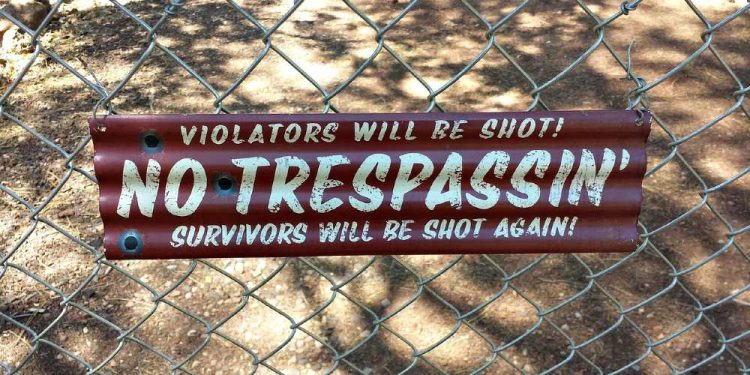(WND)—Government agents and agencies in the state of Louisiana are being sued for searching private property without the owner’s permission.
While many assume that the U.S. Constitution protects property from “unreasonable searches and seizures,” a Supreme Court decision from a century back says private land is not included.
It’s called the “open fields” doctrine and agents use it to enter property whenever they want. However, some states, including Louisiana, have a higher standard built into their state constitutions.
And that’s the focal point of the new dispute being handled by the Institute for Justice.
“Tom Manuel owns land that he uses to grow timber commercially, as well as for recreation. In December, two separate times, game wardens with the Louisiana Department of Wildlife and Fisheries (LDWF) entered Tom’s land without permission in search of possible hunting violations. Both times they left without giving a citation,” the legal team explained.
“The warrantless, permissionless searches by state law enforcers struck Tom as a violation of his rights. The Louisiana Constitution says in stark terms that ‘property’ must be secured from ‘unreasonable searches . . . or invasions of privacy.’ There is no exception for any government official. Now, Tom is suing the LDWF with the Institute for Justice (IJ), which protects property rights nationwide and has several similar suits in other states.”
James Knight, a lawyer for IJ, explained, “The Louisiana Constitution protects all ‘property’ from warrantless searches—and that includes land. That may seem obvious, but misguided U.S. Supreme Court precedent has convinced state officials that they can invade private land at will. This case seeks to put a stop to that and to restore the constitutional protections Louisiana landowners deserve.”
In neighboring Mississippi, the state’s highest court already has held state officials cannot invade private land without a warrant. Other states taking the same position include Montana, New York, Oregon, South Dakota, Washington, Vermont, and Tennessee.
The “open fields” ideology is used by not just game wardens but also police, inspectors, code enforcement officers, immigration officers and others.
The lawsuit advocates for a common-sense view of property rights in Louisiana.
“I believe Louisiana’s constitution should mean what it says. While it’s important that state hunting laws be maintained, constitutional limits on government power should be upheld too. Protecting wildlife can be accomplished without trampling on our privacy and property rights. From my experience managing land in both Louisiana and Mississippi, I’ve seen that wildlife can thrive where the government must respect property lines,” the landowner said.
Cases providing similar arguments also now are pending in Pennsylvania and Virginia.
Content created by the WND News Center is available for re-publication without charge to any eligible news publisher that can provide a large audience. For licensing opportunities of our original content, please contact licensing@wndnewscenter.org.



